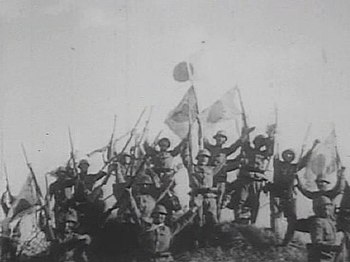
At the end of World War II, Second Lieutenant Hiro Onoda of the Imperial Japanese Army dismissed rumors of his country’s surrender, fading into the Philippine jungle to fight on. He held out for 29 years before, still dressed in his dilapidated uniform, he surrendered his sword to his former commanding officer in 1974.
Every time an American politician or bureaucrat floats some cockamamie new scheme to ban, handicap or regulate strong encryption of computer data, I think of Onoda.
The Crypto Wars began in 1991 when Phil Zimmerman released the first version of PGP (“Pretty Good Privacy”), a tool that made strong encryption available to the masses worldwide. The wars essentially ended at the same time. A few bitter dead-enders held out until the mid-1990s, firing off silly proposals for programs like the Clipper Chip and “key escrow,” but it quickly became apparent to most that the strong encryption genie isn’t going back into the bottle.
So here comes FBI director James Comey, waving a rusty samurai sword and screaming “banzai!” as he once again charges the enemy lines, 24 years after his side’s defeat.
Testifying before the US Senate’s intelligence committee in early July, Comey trotted out the latest alleged threat — Islamic State militants using strong crypto to protect their communications — and complained that “[i]n recent months … we have on a new scale seen mainstream products and services designed in a way that gives users sole control over access to their data.”
He says that like it’s a bad thing. It isn’t.
He envisions a “solution” in which software and communications providers use strong encryption that works, except when Comey wants to read your email. Even if empowering him to read your email wasn’t a very bad idea, no such solution exists.
A back door for James Comey is a back door for everyone else, too. If the encryption is broken, it’s broken.
The bad guys will always have encryption. Encryption is math and computer code. It’s free, it’s in the wild, and it will remain so. If American companies hobble their encryption, those who don’t like their encryption hobbled will get good crypto elsewhere. Shikata ga nai (“it can’t be helped”).
As for the rest of us, Comey tends toward the “if you have nothing to hide, you have nothing to fear” line. Oddly, I never hear that line coming from him when Wikileaks, Chelsea Manning or Edward Snowden reveal HIS organization’s secrets.
We use encryption for the same reason we put our snail mail in envelopes: We only want it to be read by the intended recipient. Dealing with that is Comey’s job. Catering to his voyeurism with “back doors” isn’t our obligation.
Thomas L. Knapp is director and senior news analyst at the William Lloyd Garrison Center for Libertarian Advocacy Journalism (thegarrisoncenter.org). He lives and works in north central Florida.
AUDIO VERSION
PUBLICATION/CITATION HISTORY
- “Comey vs. Crypto: The Last Banzai Charge,” by Thomas L. Knapp, Ventura County, California Citizens Journal, 07/22/15
- “Comey vs. Crypto: The Last Banzai Charge,” by Thomas L. Knapp, Sonoran News [Arizona], 07/29/15
- “Comey Vs. Crypto: The Last Banzai Charge,” by Thomas L. Knapp, Iowa Free Press, 07/25/15
